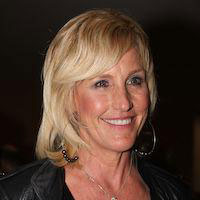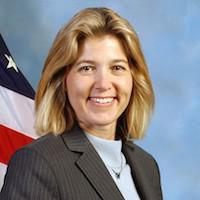
Jocelyn Blore
Criminal justice has a woman problem, namely that it does not have nearly enough of them. Despite making up more than 47 percent of the modern workforce, a 2021 analysis from the Pew Charitable Trusts indicated that women represent less than 13 percent of full-time police and sheriff’s patrol officers. And that number doesn’t seem to be increasing quickly. In 2000 six percent of state troopers were women. That number increased to only seven percent two decades later.
Women do make up a large percentage of the administrative roles in criminal justice. According to Statistia (2019), the FBI employed 13,998 female professional staff members and 10,105 male professional staff members. However, there were only 2,726 female special agents compared to the 10,900 male special agents. Similarly, more than 60 percent of civilian law enforcement employees were female. These roles are critical, but they are typical in an office rather than in the field.
While the notion that women must make up ground in several male-dominated fields is well-established, studies suggest the shortage of women in criminal justice is especially harmful for the nation at large. Cities that hire a higher share of women police officers, for instance, have far fewer complaints of excessive force, which, in turn, saves taxpayers a sizable sum in legal fees. Researchers have also honed in on the positive impact women’s conflict-resolution and community-building skills impact society, which is covered at length below.
This guide highlights some of the most promising criminal justice sectors for women; the most female-friendly criminal justice degree programs; and three exceptional trailblazers in the field.
Despite their gains in the modern workforce, women remain underrepresented in nearly every field of criminal justice; forensic nurses and paralegals are among the rare exceptions. Recent studies highlighting the advantages of hiring more women in such positions have spurred some industries to launch special programs focused solely on recruiting and hiring more of them in the field. Here are five fields that could benefit from counting more women in their ranks.
Women account for only 13.1 percent of the traditionally male-dominated field of law enforcement, yet according to Statistia (2022), we would all benefit from adding far more of them. Studies show women police officers rarely use excessive force: compared to their male colleagues, they are less likely to draw their weapons and more likely to look for nonphysical ways to handle potentially dangerous situations.
Another significant benefit to hiring more women into law enforcement is that this approach to conflict management reduces force-related court cases, saving a substantial amount of their community’s taxpayer dollars.
Federal law enforcement agencies like the FBI and the Department of Homeland Security play a critical role in protecting U.S. citizens, but its workforces do not reflect the nation’s population. While 43 percent of the employees at the FBI are women, less than 20 percent of the special agents are women.
Women have only served as special agents for the past 50 years when in 1972, Joanne Pierce and Susan Roley were sworn in. Currently, the FBI has hired female recruiters to specifically target women to apply to diversify their hiring.
Legal professions include many careers, from court clerks and paralegals to lawyers and judges. A 2021 report from the American Bar Association’s Women in the Legal Profession suggests women are still grossly underrepresented in many legal fields, especially in high-ranking firms and positions.
According to the ABA, this disparity begins in the classroom. Women who pursue criminal justice degrees can work toward justice for all and battle gender inequality in a very tangible way. In 2010, 31 percent of attorneys were women. That number increased to 37 percent in 2021.
Cybersecurity is perhaps one of the fastest-growing fields of criminal justice. In fact, Global Newswire (2022) reported that the market for these professionals was poised to grow to more than $366 billion by 2028. The Bureau of Labor Statistics estimates that there will be a 33 percent increase in jobs in this field between 2020 and 2030, translating into 47,100 new jobs.
Unfortunately, the Women in Cybersecurity report by the non-profit cybersecurity certification group (ISC)2 found that women are outnumbered three to one. What’s interesting is that overall, women are more educated than men, with 52 percent of women holding post-graduate degrees compared to only 44 percent of men. The landscape has been improving. Previous research found that only 11 percent of cybersecurity professionals were women, compared to 24 percent in 2022. However, there is still much work to be done.
Like most criminal justice careers, corrections officers heavily skew male. According to the Bureau of Prisons (BOP), only 28.4 percent of corrections officers are women. Often, female corrections officers only work in women’s prisons, although increasingly they are working with male incarcerated populations. Reasons why women are discouraged from being corrections officers include being “too weak” and they are a distraction to male co-workers or prisoners. However, women are effective corrections officers and many of the concerns about sexual harrasent are being mitigated through female friendly policies that don’t retaliate for reporting incidents.

Erin Brockovich showed just how much dedicated paralegals can improve people’s lives. She is perhaps best known for building an environmental case against California’s Pacific Gas and Electric Company in 1993—the subject of a major movie released just seven years later. Brockovich participated in several more anti-pollution lawsuits and today serves as president of Brockovich Research & Consulting.

Clea Koff is a forensic anthropologist commonly referred to as the “Bone Woman.” She spent several years serving the United Nations International Criminal Tribunal for Rwanda and the International Tribunal for the former Yugoslavia in Rwanda, Bosnia, Croatia, Serbia, and Kosovo. While there, Koff was able to verify the methods by which victims of genocide and other crimes against humanity died and confirm their status as non-combatants.

Amy Hess is the first woman ever to lead the FBI’s Criminal, Cyber, Response, and Services Branch. In this role, Hess led teams of agents who collected evidence and gathered classified information, and worked with teams of digital forensic experts specializing in facial recognition, fingerprinting, and more. Hess was reportedly a role model to other women in the FBI—a group she says is simply too small. In February 2020, she left the FBI to work as first the Chief of Public Service and then the Chief of Public Safety at the Louisville Metro Government.
Women entering the criminal justice field need the proper training—a once-intimidating prospect in a series of majors once dominated by men.
Fortunately, today’s admissions candidates have many female-friendly programs from which to choose, and just as many scholarship programs designed to help them succeed.
Online BS in Criminal Justice from King University
As a well-respected military college training tomorrow’s leaders, King University makes a strong case for the value more women add to the field of criminal justice, stating that women exhibit many of the skills traditionally understocked in this male-dominated field, including proactive conflict resolution, strong communication skills, and a knack for community-building.
King University’s online BS in criminal justice helps men and women alike establish the core knowledge one needs to succeed in a myriad of criminal justice specialties. Courses explore such themes as criminal law, American policing, and theories in criminology. This 124-semester-hour program is available fully online. As of 2022-23, program tuition was $305 per credit.
Online BS in Criminal Justice from Texas Woman’s University
In a traditionally male-dominated field like criminal justice, building a strong network and support system of fellow women can be invaluable. This is precisely what Texas Woman’s University’s online BS in criminal justice offers.
Not only do women have an opportunity to build relationships with peers as passionate about the field as they are, but they also can learn from experienced female instructors who serve as mentors and role models. This 120-credit fully online program offers coursework such as criminal investigation; women, crime, and justice; and social inequality. Readers can refer to TWU’s online Tuition Estimator for personalized cost information.
Online BS in Criminal Justice from Norwich University
Norwich University is recognized for its excellence in online teaching: in 2022, U.S. News & World Report ranked its online bachelor’s degrees among the top 25 in the nation. The school is also a strong advocate for hiring more women in the criminal justice field.
Norwich’s online BS in criminal justice is designed to help women (and men) start or advance careers in law enforcement and the courts. Its CJ program is a completion program, which means students can complete and transfer up to 90 undergraduate credits from another institution, reducing the program’s average time-to-completion 18 months.
Courses include homeland security and intelligence; emergency and disaster relief operations; and cold case investigations. According to the school’s official website, online criminal justice students’ per credit hour cost as of 2022-23 was $375 per credit hour for civilian students and $250 per credit hour for Active Duty military.
Women considering careers in criminal justice have no shortage of options. Criminal justice is perhaps one of women’s most versatile degrees; graduates can use them as stepping stones into many different career paths. Some examples by field include:
|
Law Enforcement
|
Law
|
|
Forensics
|
Information Security
|
Women can pursue several careers in criminal justice. As with any other field, earnings, job potential, and training requirements vary. The following table provides this information for some of the most common careers in the field, as reported by the BLS’s Occupational Outlook Handbook (2022).
Readers can visit the Bureau’s Labor Force Statistics Population Survey to find information on women’s earnings specifically. Please note that between 2020 and 2030, the average projected growth across all U.S. occupations is 8 percent. These represent the latest figures as of August 2022.
| Occupation | Projected Growth in Openings (2020-2030) | Median Salary (May 2021) | Typical Entry-Level Degree or Diploma |
|---|---|---|---|
| Forensic Science Technicians | 16% | $61,930 | Bachelor’s degree |
| Law Teachers | 12% | $123,470 | Ph.D. or JD |
| Criminal Justice and Law Enforcement Teachers | 12% | $64,600 | Master’s degree |
| Information Security Analysts | 33% | $102,600 | Bachelor’s degree |
| Forensic Nurses* | 9% | $77,600 | Bachelor’s degree |
| Forensic Accountants* | 7% | $77,250 | Bachelor’s degree |
| Arbitrators and Mediators | 10% | $49,410 | Bachelor’s degree |
| Paralegals | 12% | $56,230 | Associate degree |
| Lawyers | 9% | $127,990 | Doctoral or professional degree |
| Police and Detectives | 7% | $66,020 | Associate degree |
*Information is relevant to all specialties in the field, not just forensics.
Professional organizations do more than help women connect with others in their field: these associations provide career support, networking events, and training opportunities. Many also invest in research or public information campaigns that advocate for the advancement of women in the field. Here are some of the criminal justice organizations designed for women:

Jocelyn Blore
Jocelyn Blore is the chief content officer of Sechel Ventures and the co-author of the Women Breaking Barriers series. She graduated summa cum laude from UC Berkeley and traveled the world for five years. She also worked as an addiction specialist for two years in San Francisco. She’s interested in how culture shapes individuals and systems within societies—one of the many themes she writes about in her blog, Blore’s Razor (Instagram: @bloresrazor). She has served as managing editor for several healthcare websites since 2015.